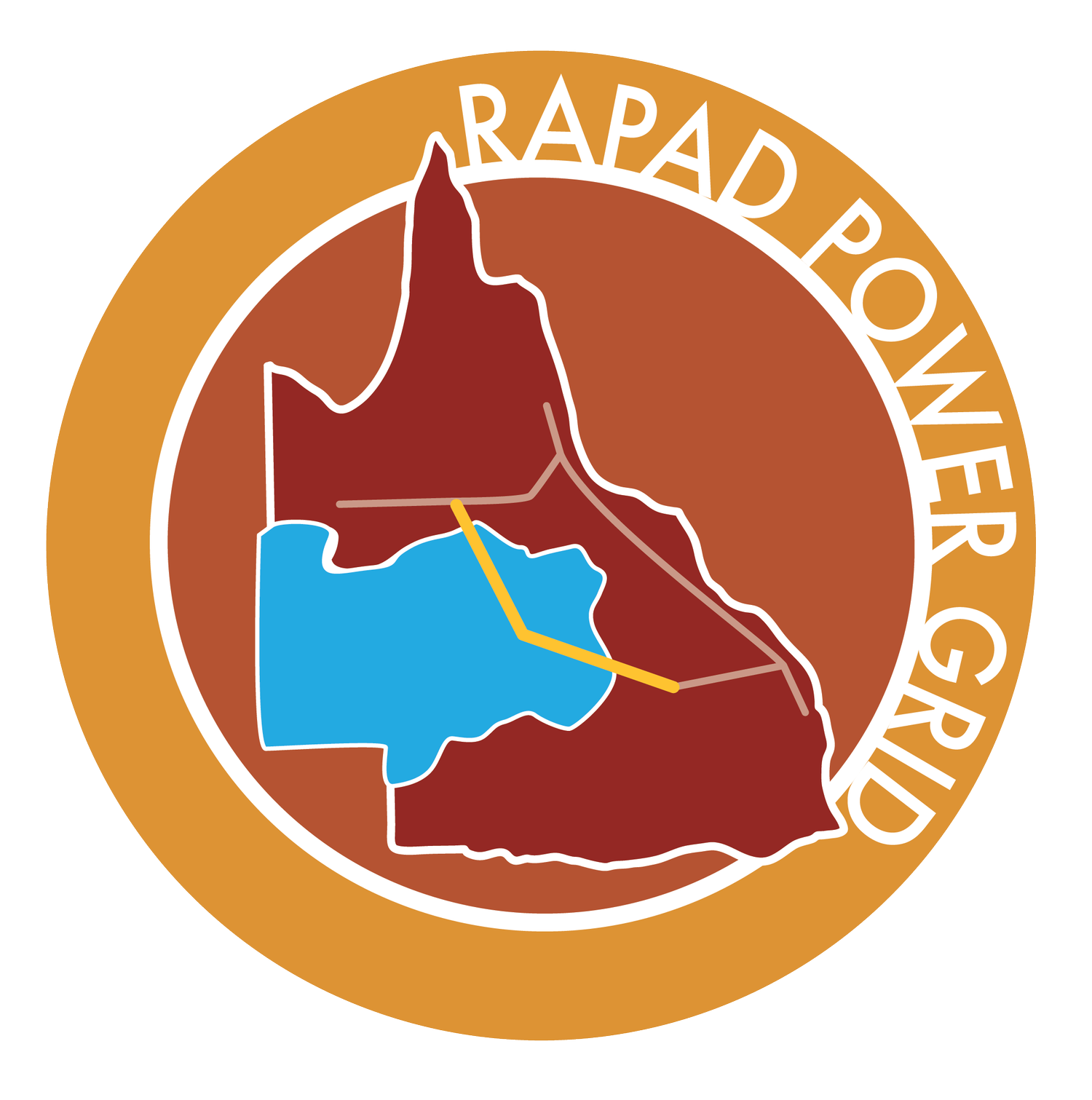
RAPAD’S LESSONS FROM THE US MISSION
From our RAPAD delegates
RAPAD Chair and Longreach Mayor
Tony Rayner
Barcoo Shire Mayor
Sally O’Neil
Blackall-Tambo Regional Councillor
Boyd Johnstone
Key takeaways and outcomes
The mission validated the assumption that real economic benefit is being returned to rural and remote communities leading the transition in the USA and there is a model for community benefit the RAPAD region can learn from and apply here. Texas especially offers templates and models for development which will allow RAPAD to fast track.
These returns were due to the initial investment in large scale transmission development. Transmission is the key enabler and first step. Without this, very limited, if any, energy generation returns will be delivered to rural communities.
The successful Competitive Renewable Energy Zone (CREZ) transmission model delivered in west Texas, to bring renewable energy from the open plains to the demand in the major cities, is an excellent model for how to deliver these outcomes here in Queensland. RAPAD feels this success can be replicated here in Queensland through the delivery of the RAPAD Power Grid.
Based on the success of the CREZ transmission program RAPAD Power Grid can catapult Queensland and eastern Australia’s strategic infrastructure planning to truly align with the ambition to become a green industrial superpower.
Reinforced that the RAPAD region, like west Texas, has a comparative and competitive advantage in delivering energy compared with other parts of Queensland, and one of the real benefits from RAPAD Power Grid is the central west has ideal land for large scale transmission and renewable generation and batteries as it is far removed from the environmentally sensitive and biodiverse regions toward the east coast and the food bowls along the foothills of the Great Dividing Range.
Reinforced these developments do diversify rural and remote communities economies away from the weather by developing additional economic income streams.
Outlined how a range of technologies are being utilised to deliver economic outcomes.
Highlighted like here in Queensland, these developments are customer driven. Demand from customers, whether they be industry or public, are driving the development and they are seeking integrated renewable solutions from transmission and generation.
Landholders and communities need to proactively ensure the best outcomes for them when dealing with developers, especially regarding issues like decommissioning of sites. Role of RAPAD is to help inform those in the region as to how to get the best outcome for all.
Validated the importance of the role RAPAD Power Grid can play in dramatically increasing the confidence for green industrial investors that the NEM power system can supply their renewable energy requirements, particularly for key green industrial hubs in Gladstone and Townsville.
Communities and councils must ensure they are ready for development. It is essential councils and communities are prepared to maximise this opportunity by having plans in place through ensuring residential and industrial planning is well underway to make best use of the opportunity.
International companies are interested in the RAPAD Power Grid development and are wanting to learn more about how they can participate in the future.
Transmission lines are agnostic and the market/customers will determine what type of power will best be delivered.
Whilst such investment in energy infrastructure will assist rural communities diversify their economies it is not a silver bullet to what are long-term issues, such as depopulation. By their very nature unlike fossil energy developments, renewable energy generation alone does not employ large work forces past construction, hence the importance of integrating with larger transmission line construction.
RAPAD is strengthening social and economic engagement between regions and is preparing a sister city relationship between itself and the Sweetwater Enterprise for Economic Development Municipal Development District (SEED MDD).
Mission allowed participants to connect and exchange international best practice knowledge and now RAPAD Directors are some of the most informed community representatives in Queensland regarding returns for the communities leading the transition.
Climate change is an economic opportunity for our region like it has been for west Texas.
Texas has an interesting renewables history, many people in Texas don’t necessarily believe in climate change yet they have more renewables than any other state, their decisions are based on economics not philosophy.
Government enabled the economic outcomes due to their policy of building transmission.
Stewardship is very important, we don’t want something like solar to become a major problem for us in 30 years. It’s vital to have programs to ensure recycling occurs from the beginning. We don’t want our saviour to be our undoing.
If you build it, they will come.
Billions of dollars of investment in renewables and transmission are flowing into Texas from across the USA and the world.
Texas is the ‘Silicon Valley’ of energy, in fact they now call Texas ‘Silicon Hills’.
It’s very vindicating to get unanimous support from all we visited that the RAPAD Power Grid is real, can happen, and will deliver benefits to the RAPAD communities and Queensland just like it is currently in Texas.
Social Licence is everything. If you don’t have support of the local community you don’t have a project. Landholders and community come first.
West Texas’s renewables are driving development and growth in the metropolitan centres, by bringing solar, wind, and geothermal from the regions to the demand centres of Houston and Austin.
